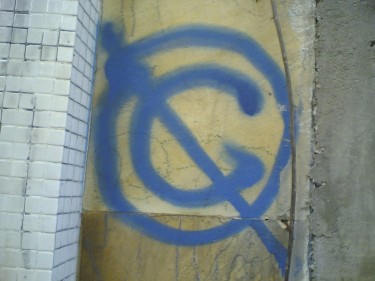On Wednesday night, January 23, 2013, the Colombian Constitutional Court declared unconstitutional [es] Articles 13 and 14 of the Law 1520, better known as “Lleras Law 2.0,” stating that the law “violated the fundamental rights of expression and communication.” The proposed law introduced new terms and penalties for online copyright infringement in accordance with the Free Trade Agreement signed between Colombia and the United States.

Contra-copyright by Marco Gomes (CC BY 2.0)
The Court addressed Article 13, which forbids the broadcast of TV signals without the express permission of rights holders, and Article 14, which would make it illegal to break Digital Rights Management (DRM) — technologies used to block access to copyrighted digital content — and to make private copies of content, even when legally acquired. The Court found that these articles constituted a breach of fundamental rights to education, access to information and equality.
The Court also declared that the entire process of passing the law was flawed, arguing that it should have been treated as a statutory law and not an ordinary one, thus rendering the rest of the law void.
This outcome is the result of a law suit filed by Senator Jorge Robledo before the Constitutional Court nearly a year ago [es]. He argued that the law restricted the use of the Internet to transmit information and forbade the broadcast of TV signals, limiting, without justification, citizens’ rights to access and share information.
Advocacy by netizens and civil rights organizations also contributed to the outcome. Since Colombia's congress passed the law in May of 2012, a campaign of “citizen interventions” and protests expressed widespread indignation about the law.
Yesterday, however, upon the announcement of the rejection of Lleras Law 2.0 by the Constitutional Court, the Colombian blogosphere was in a celebratory mood. Blogger @pazpena, from the ONG Derechos Digitales (Digital Rights) is happy. He writes [es]:
un resultado feliz para toda la sociedad civil que se movilizó y para los representantes que supieron escuchar sus demandas.
a happy outcome for all the civil society [who] mobilized [itself] and for representatives who were able to listen to their demands.
Now, the Executive will need to draft a new bill on intellectual property in order to meet the requirements of the Free Trade Agreement signed between Colombia and the US, which once again will have to be approved by the Constitutional Court before it becomes a law.
The battle is not over yet.




1 comment